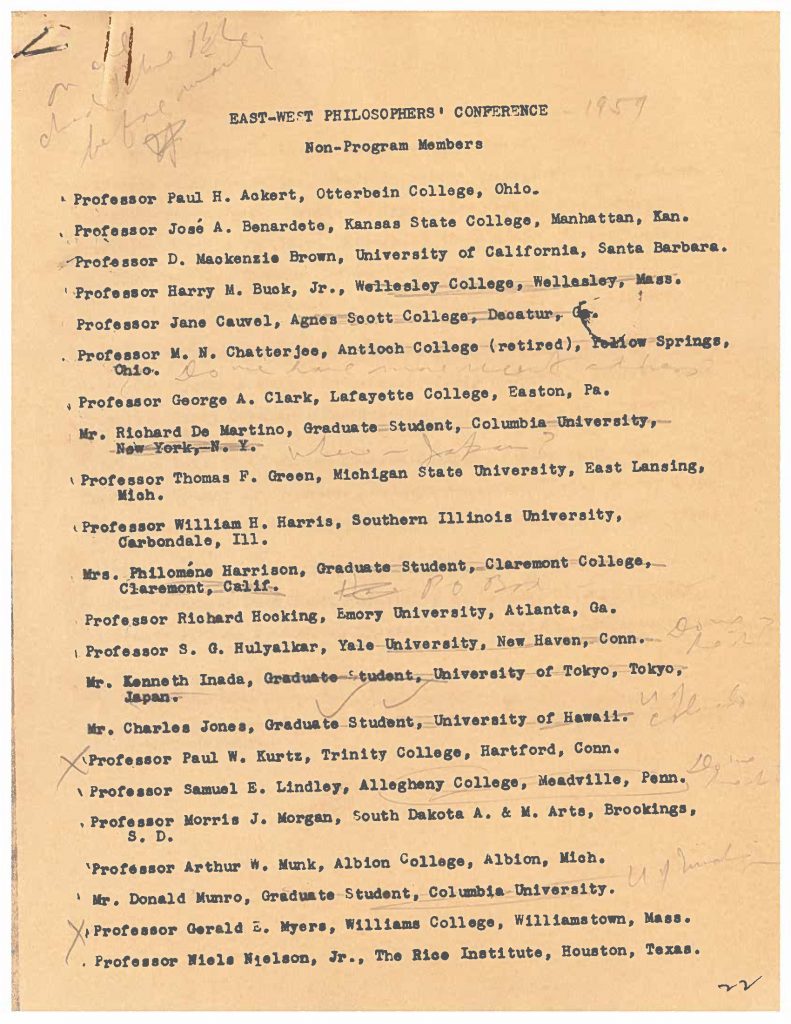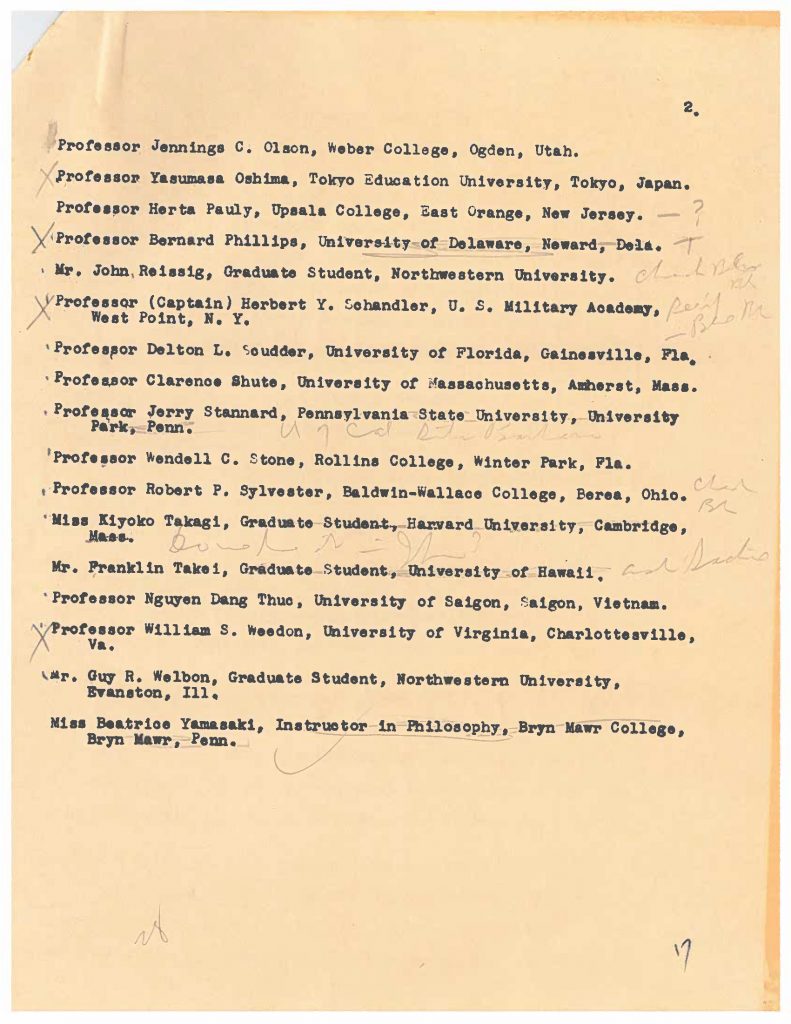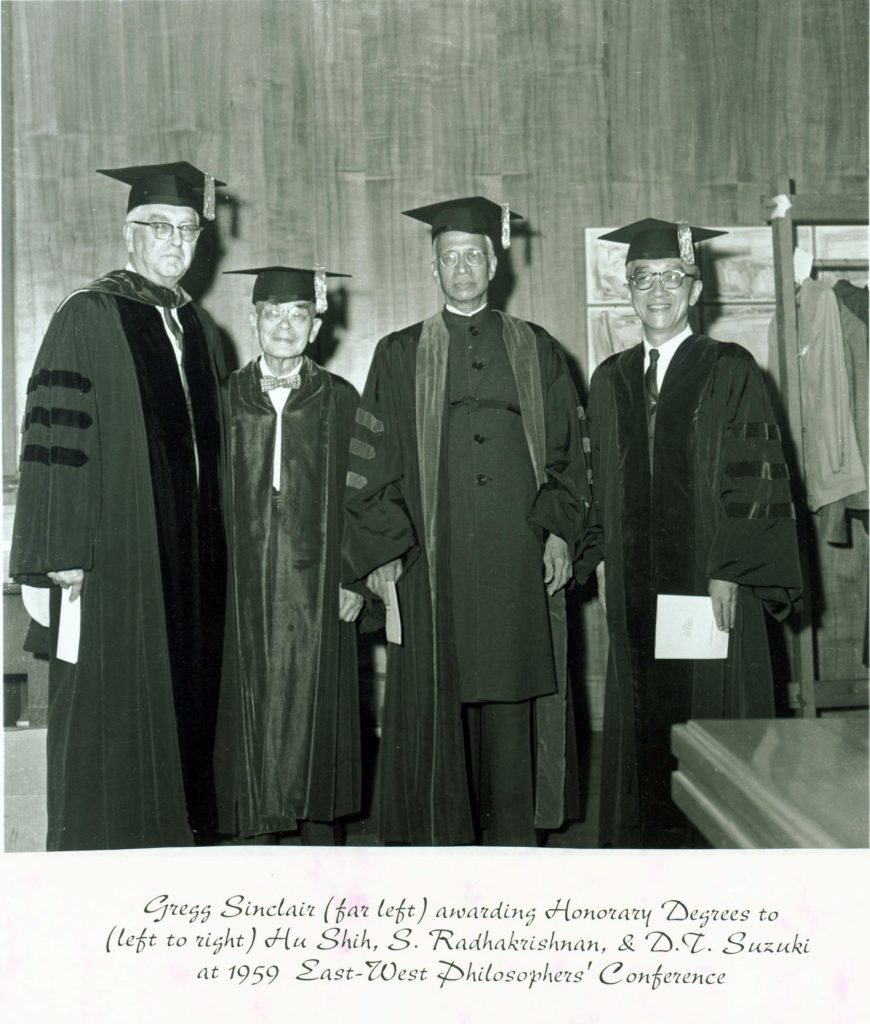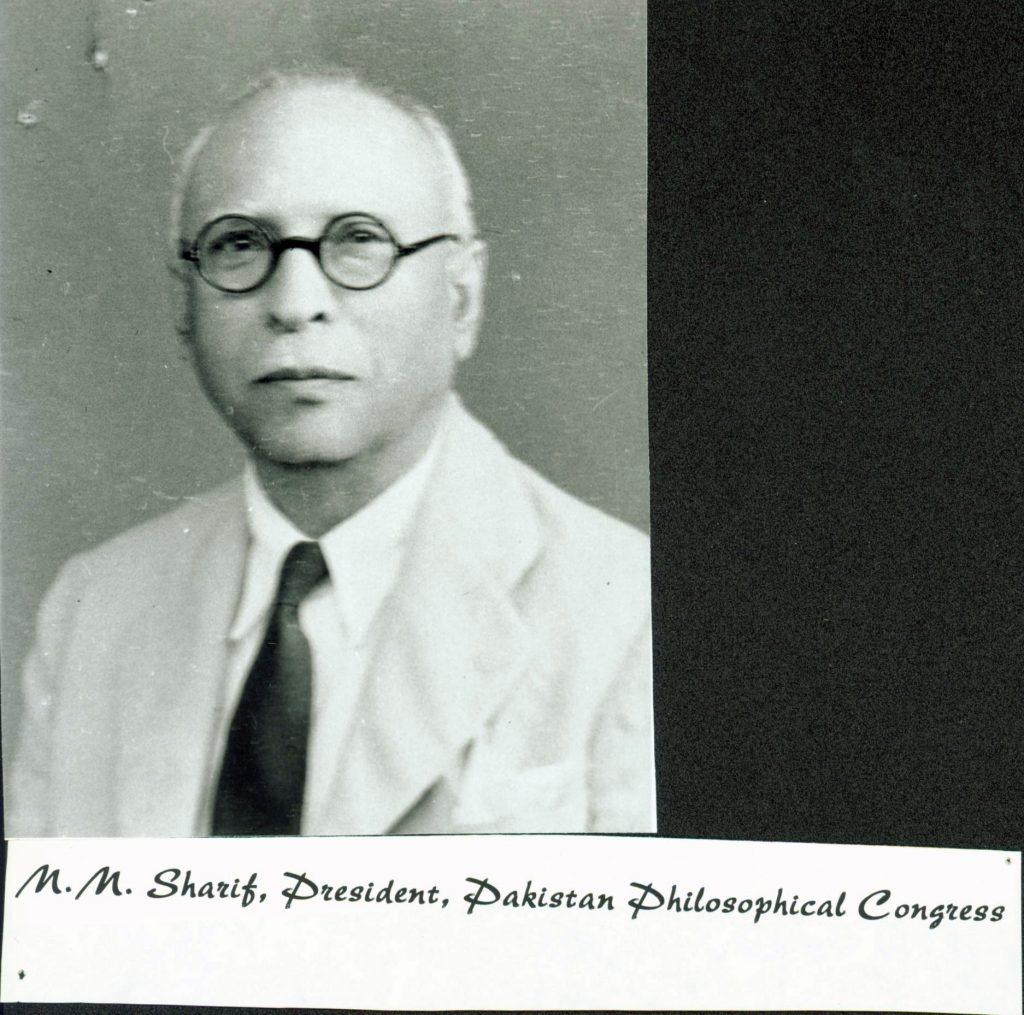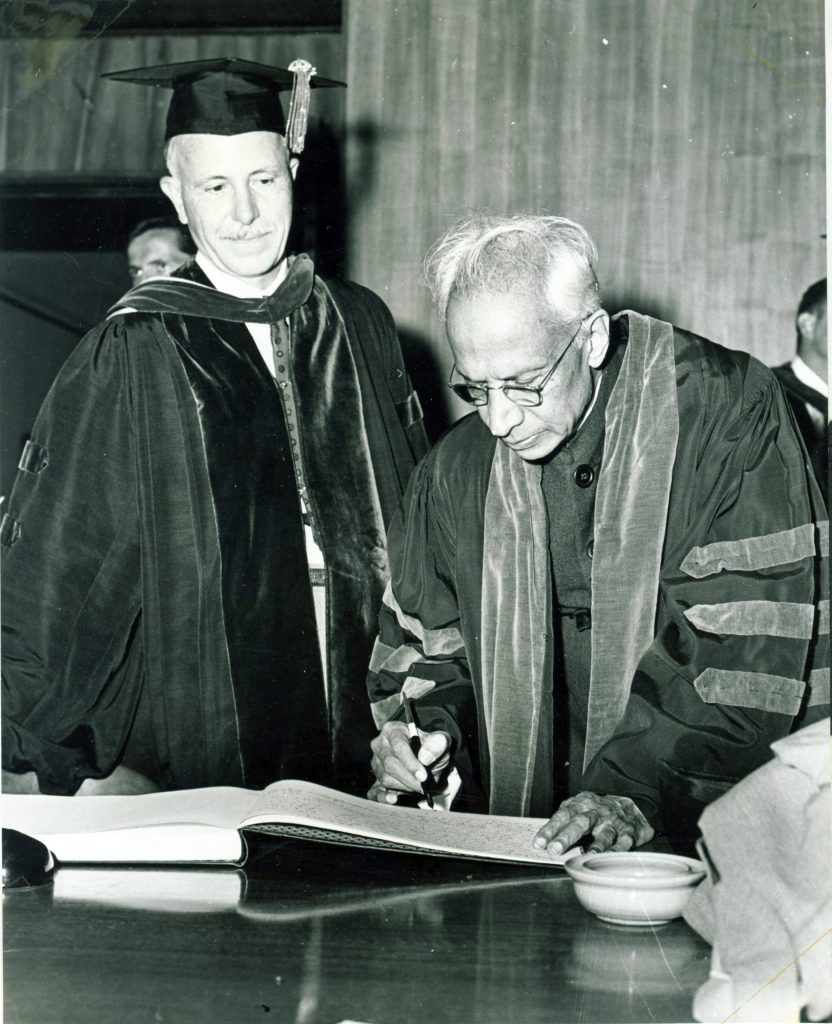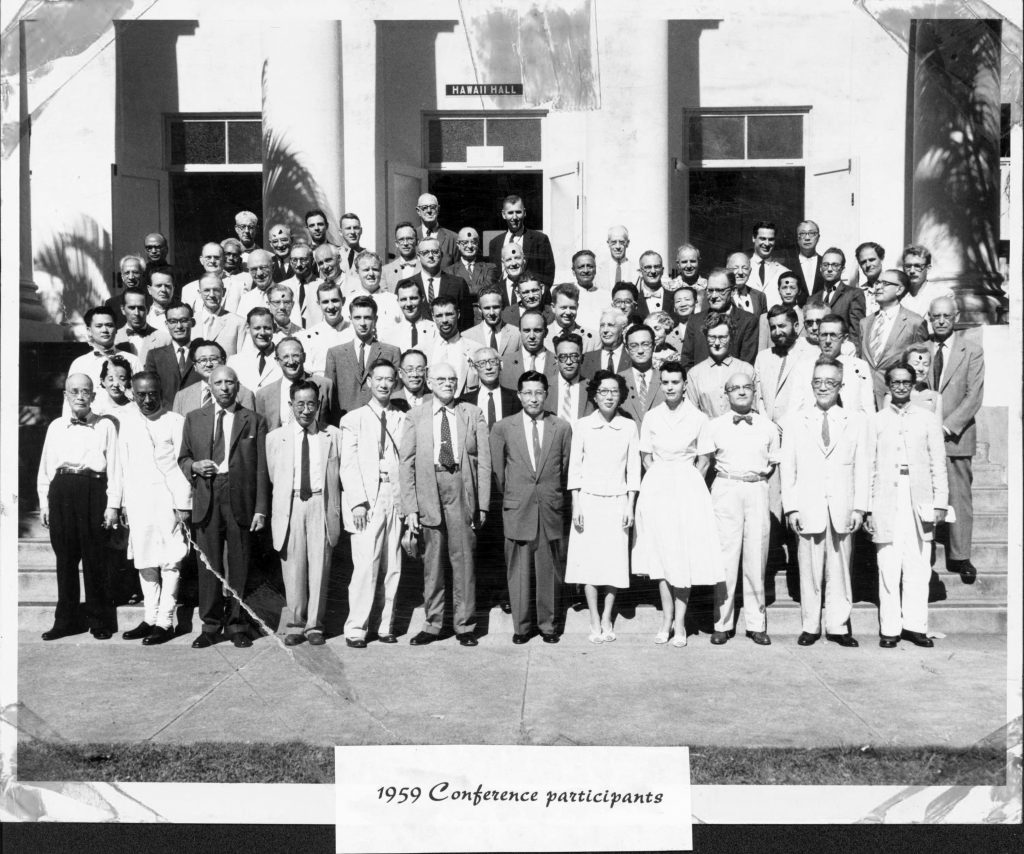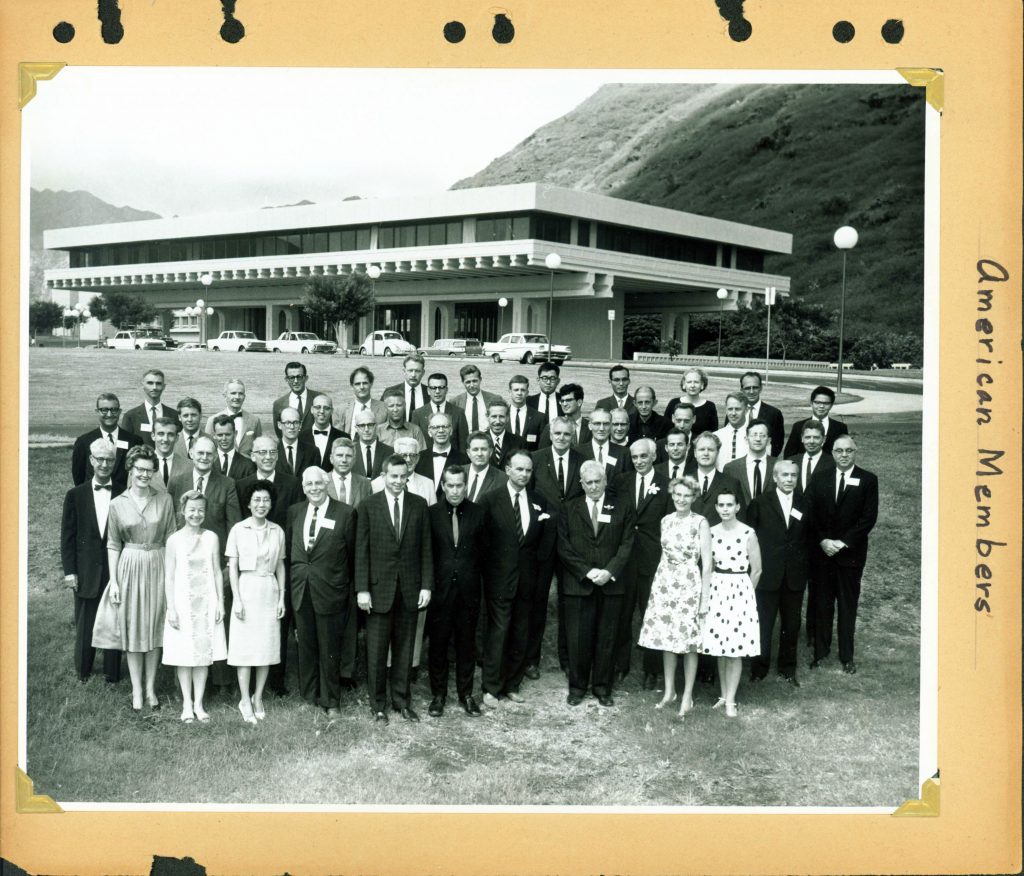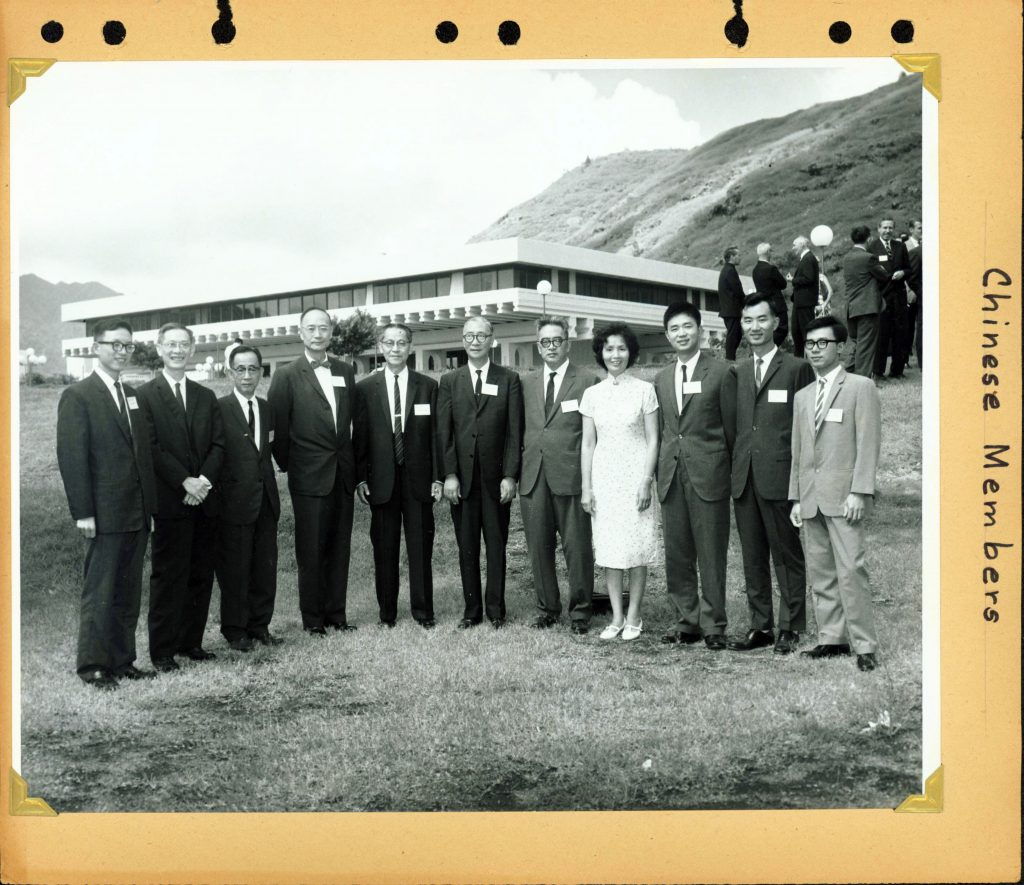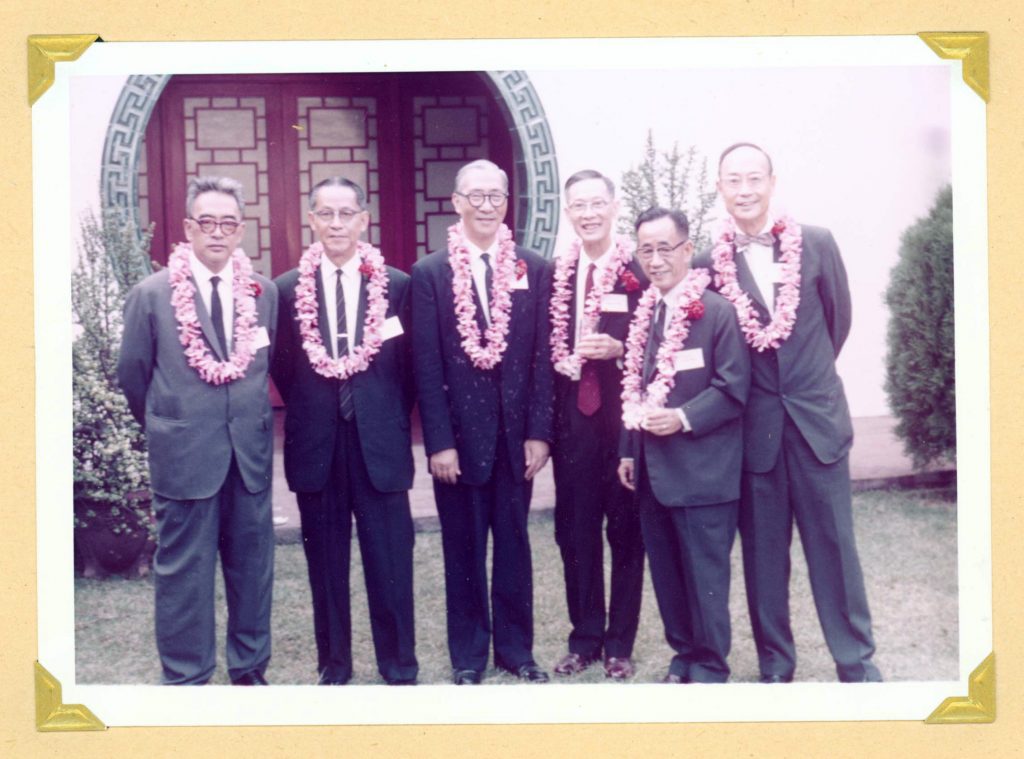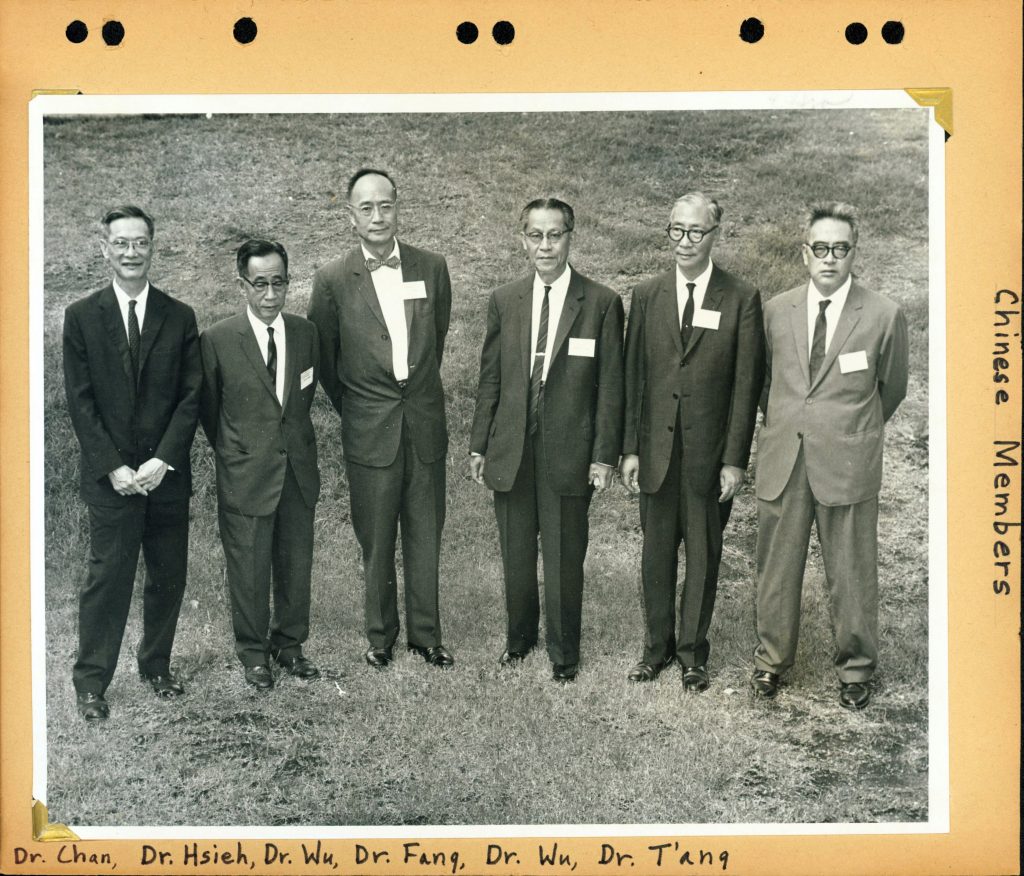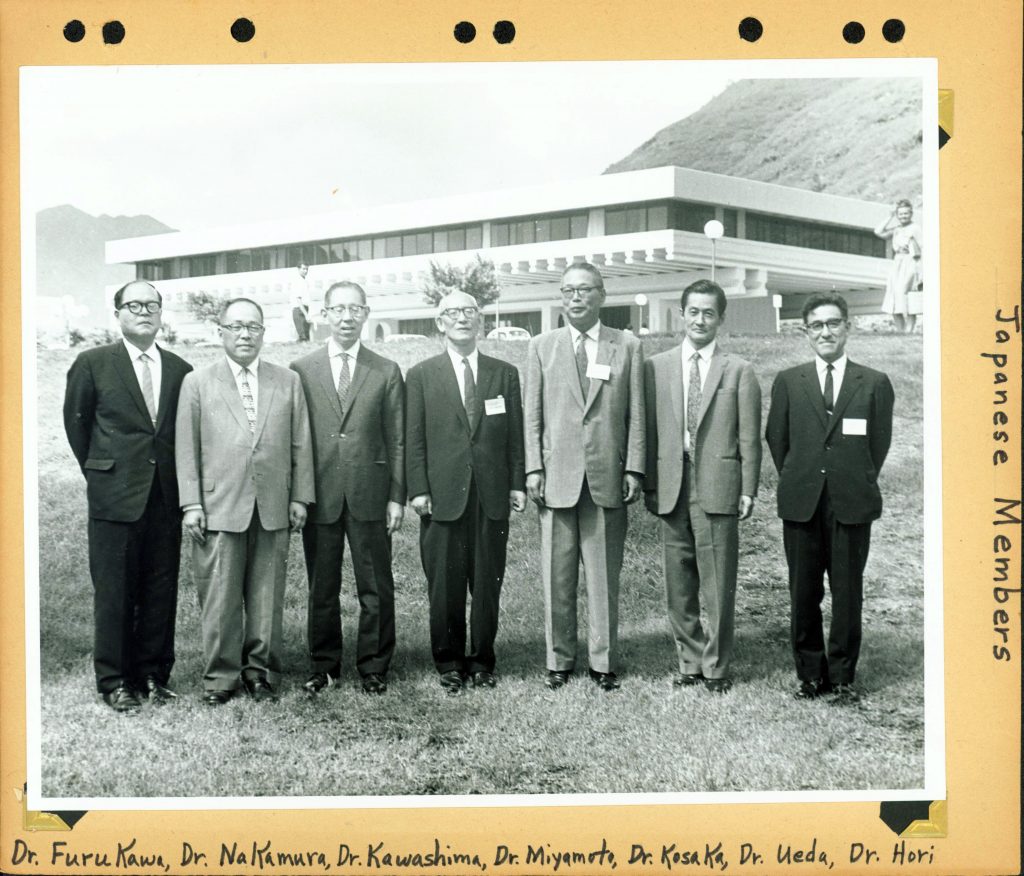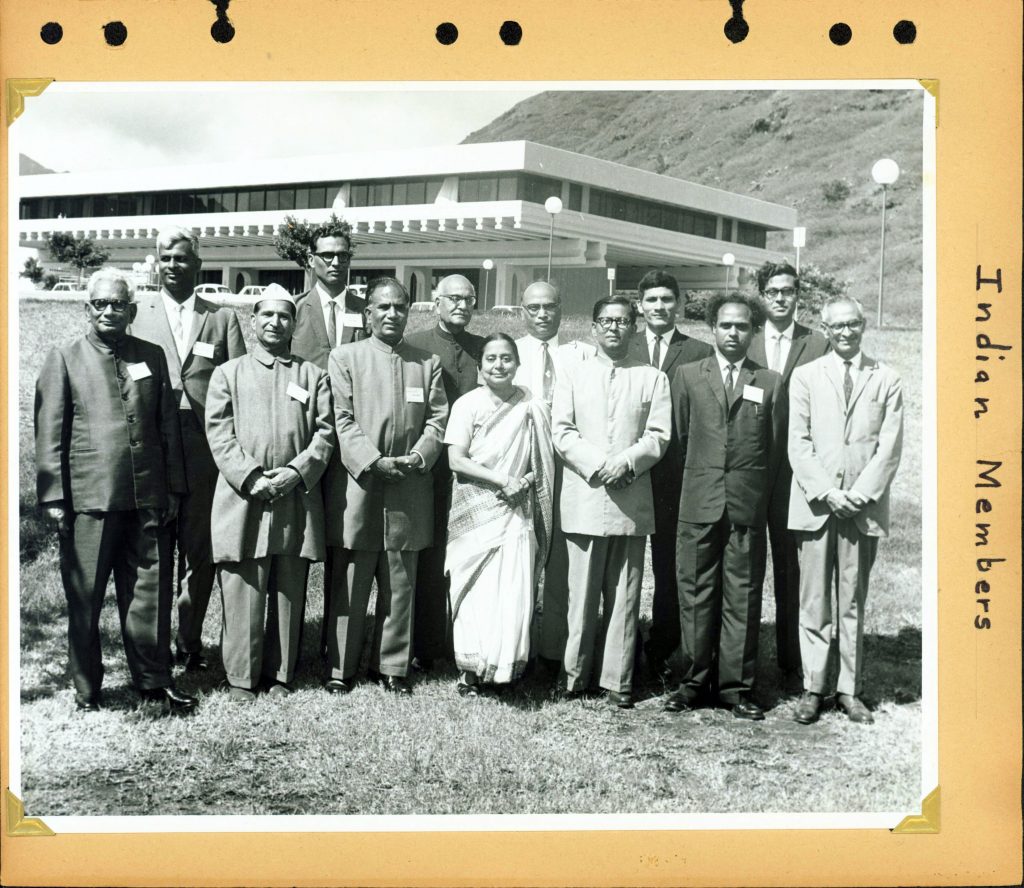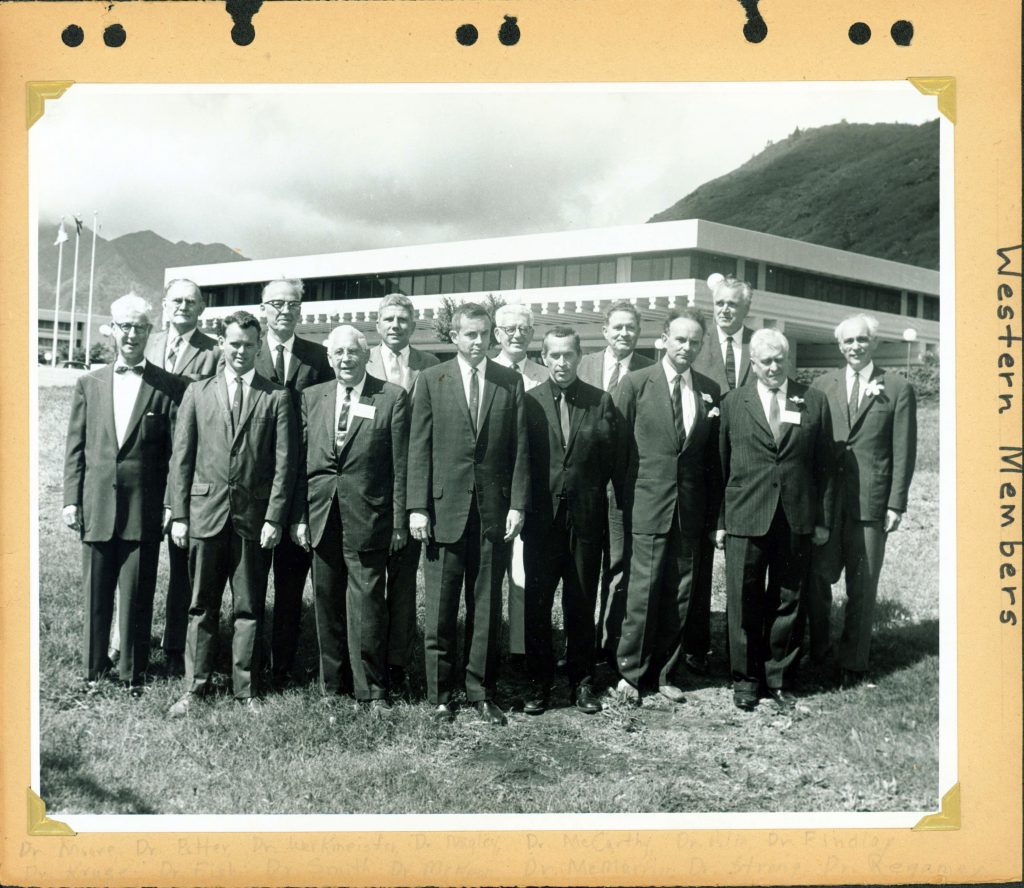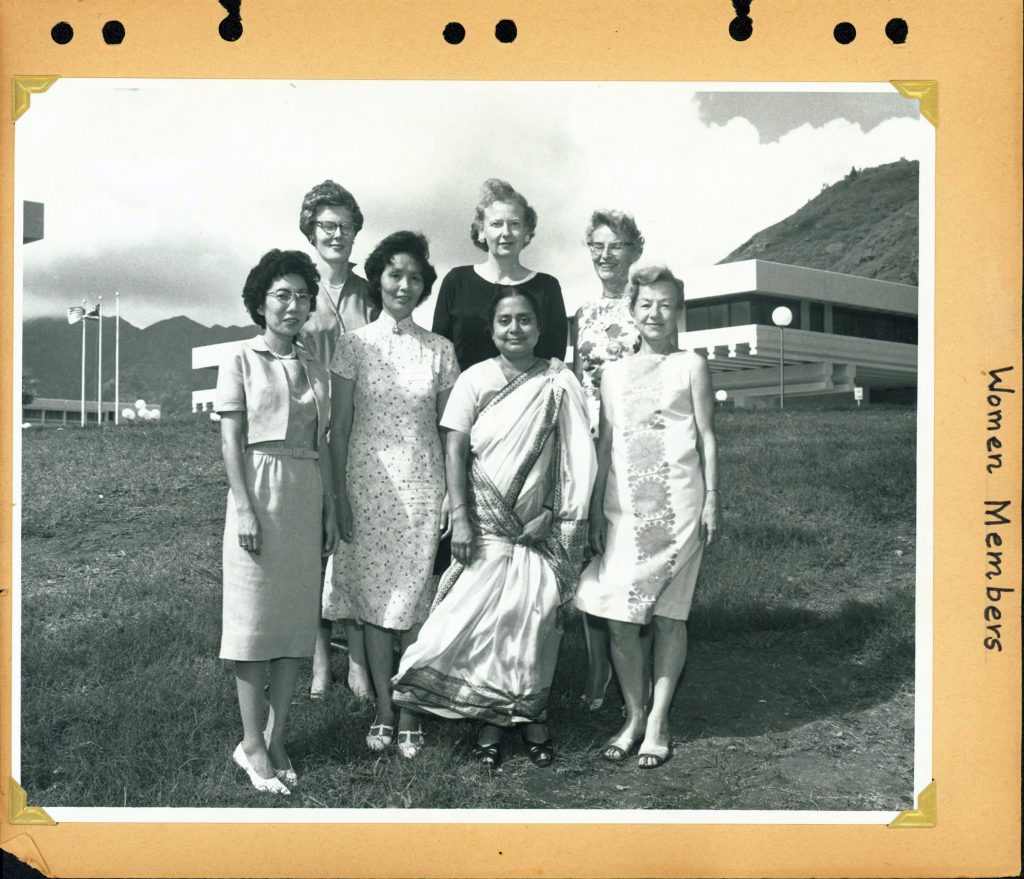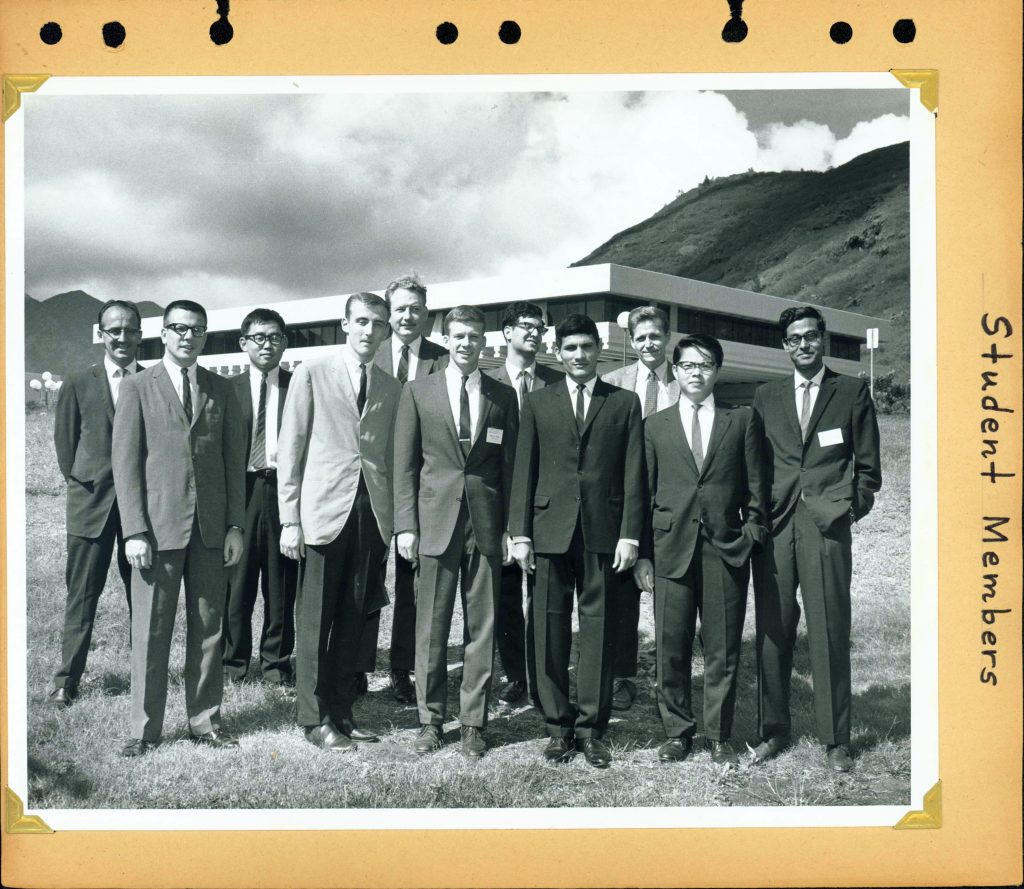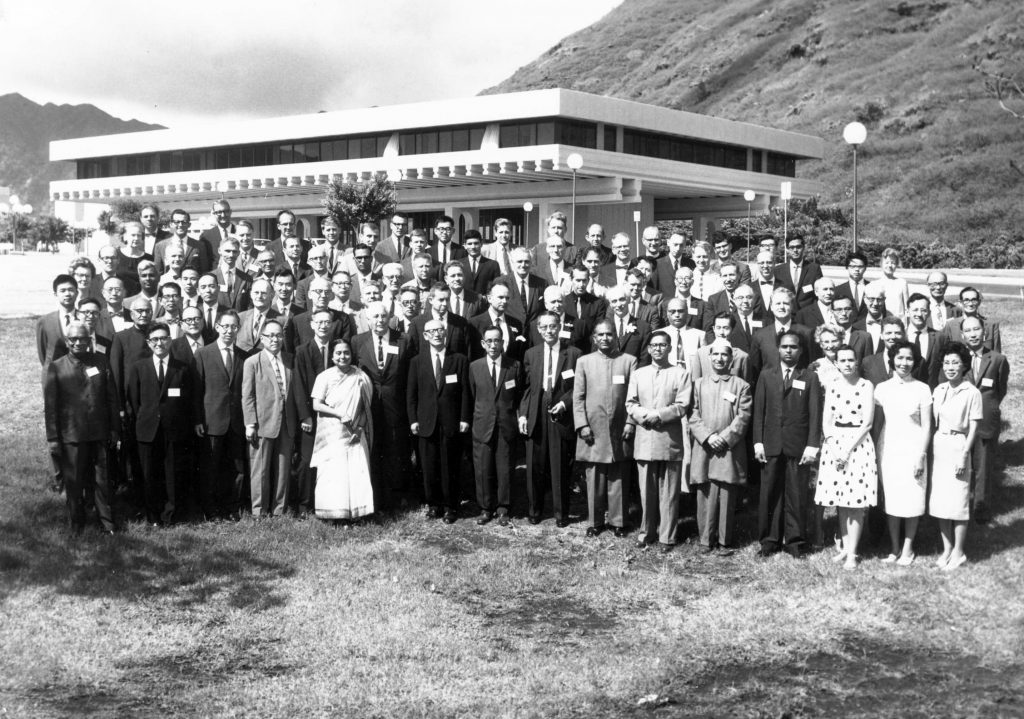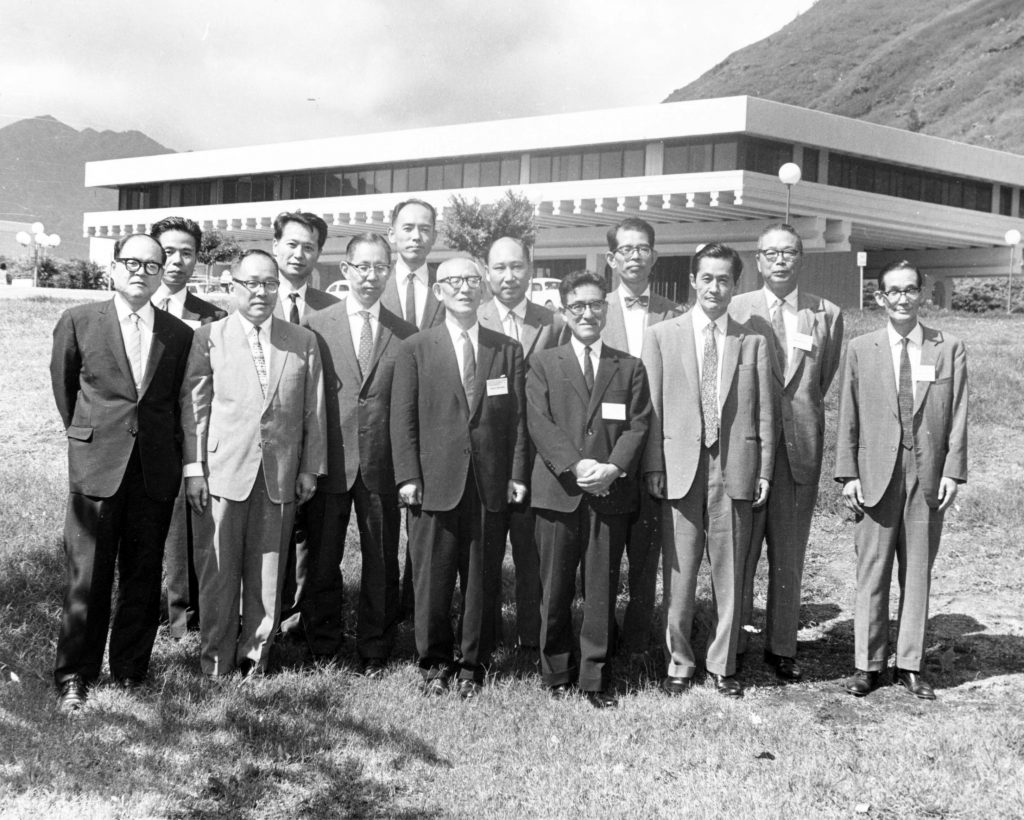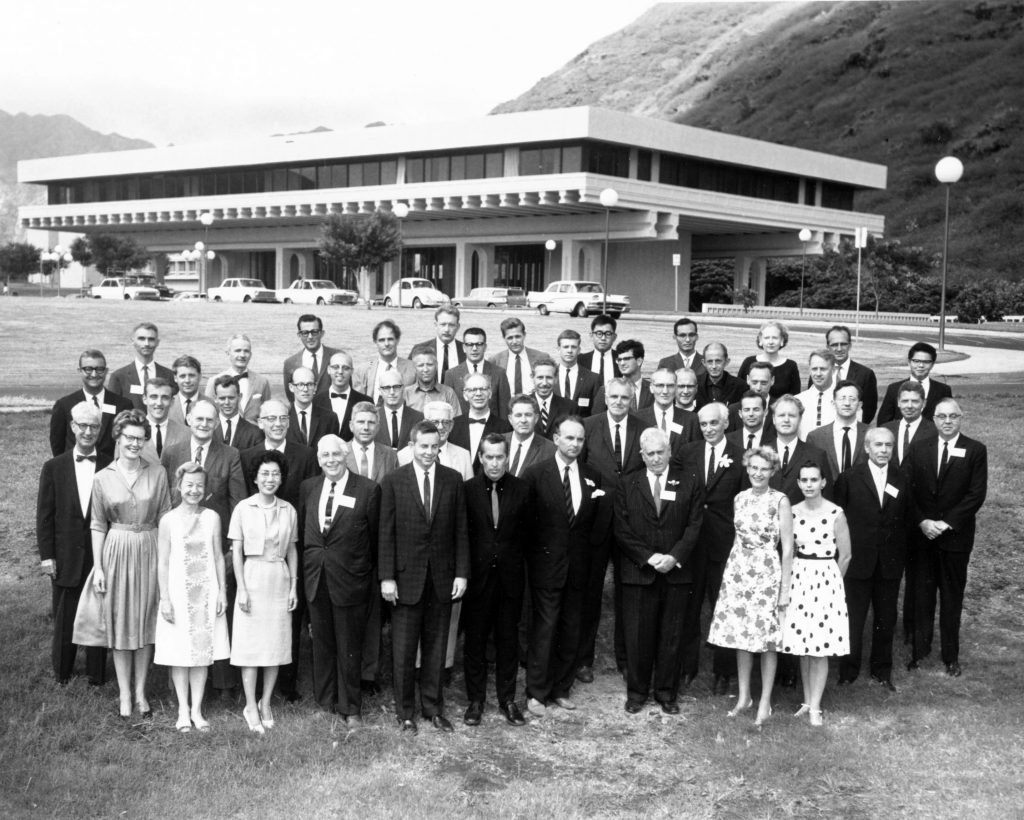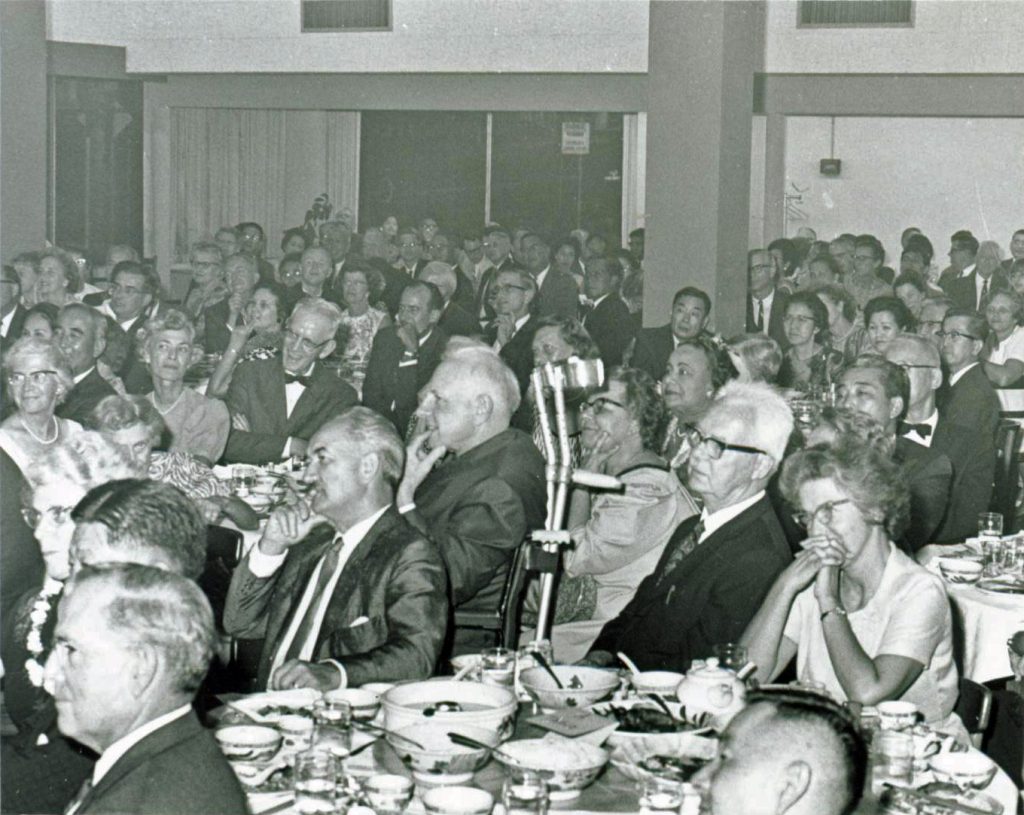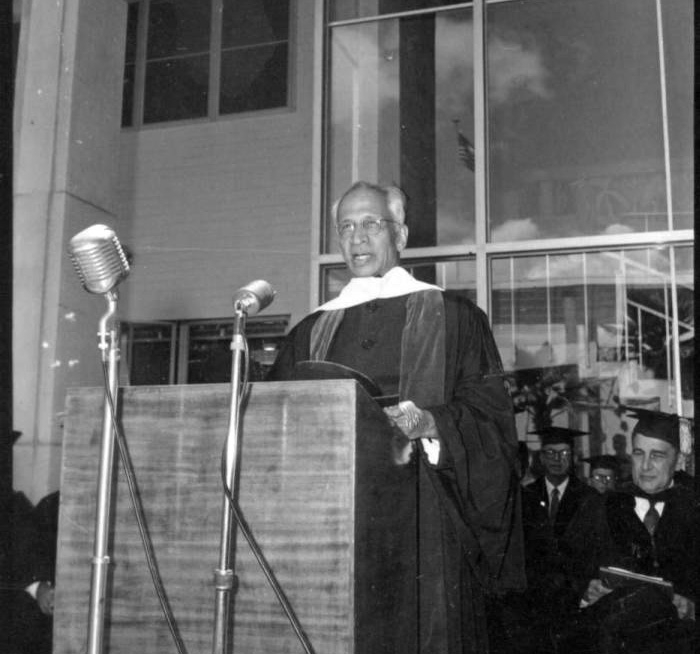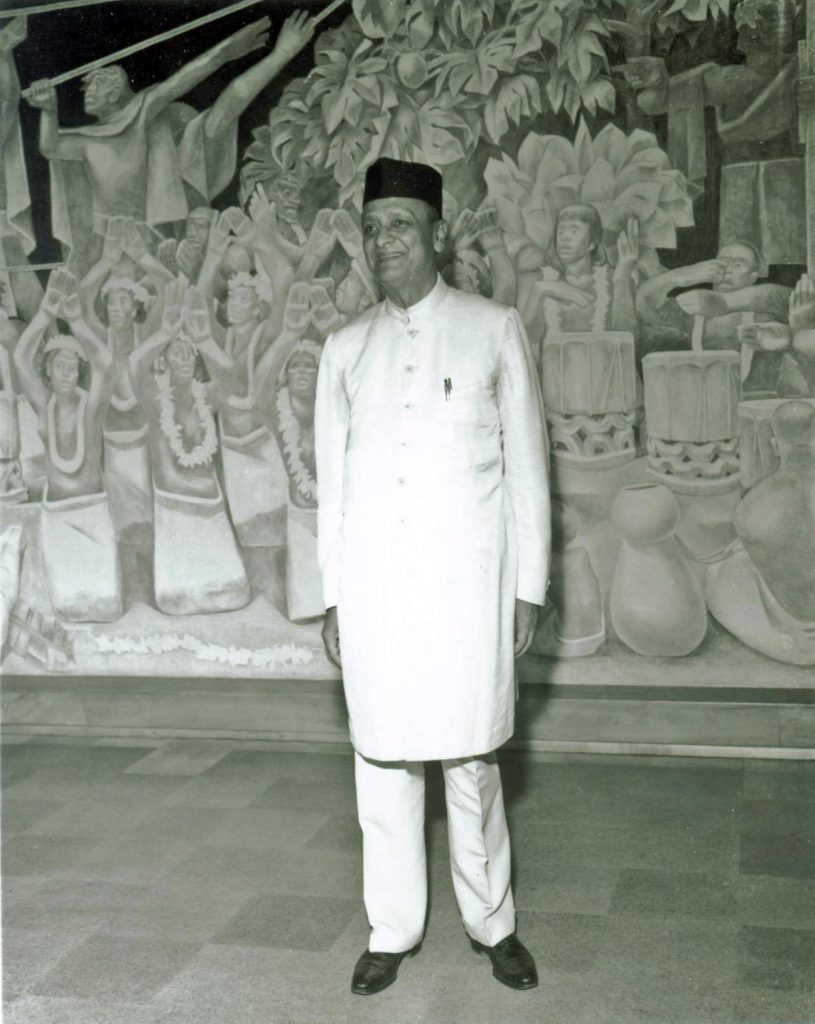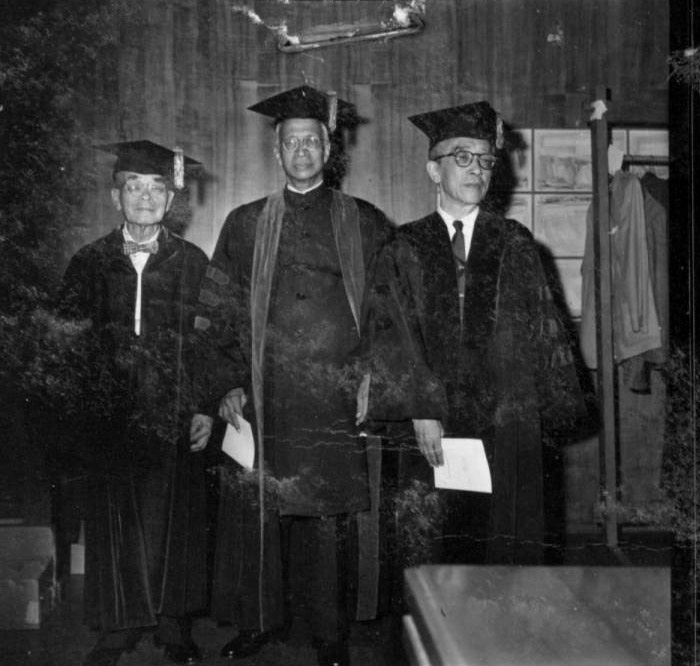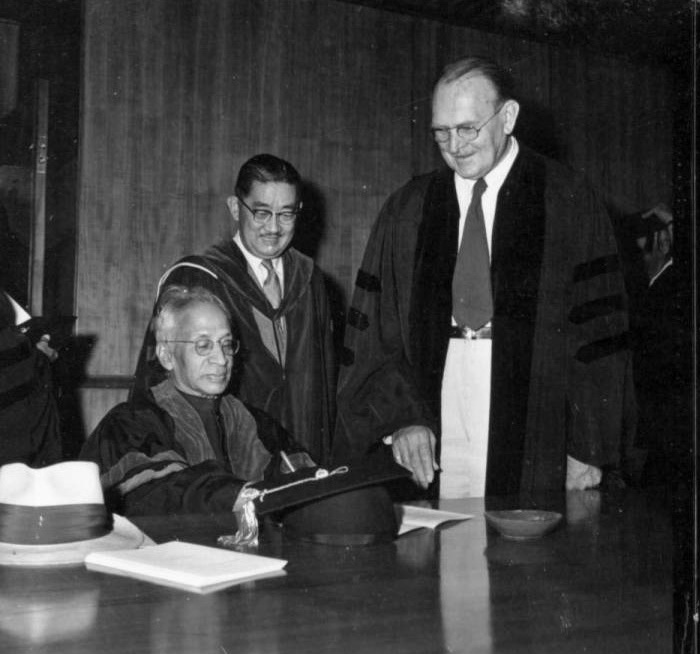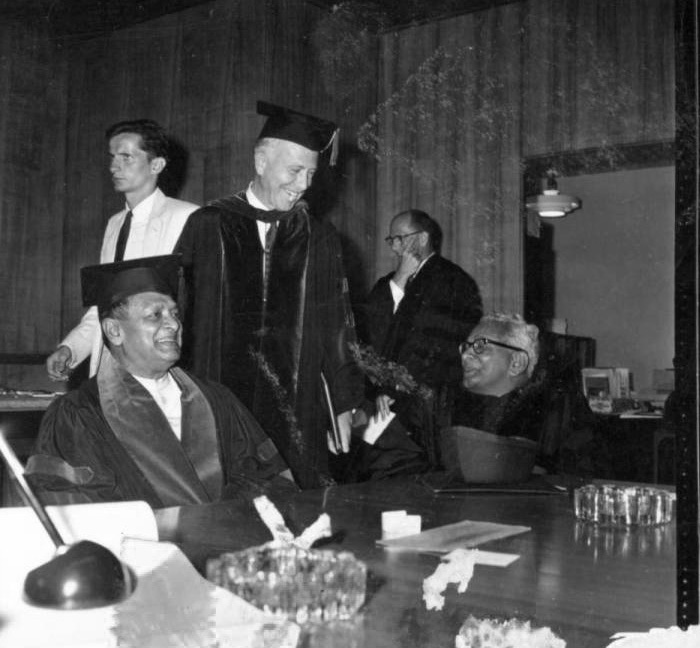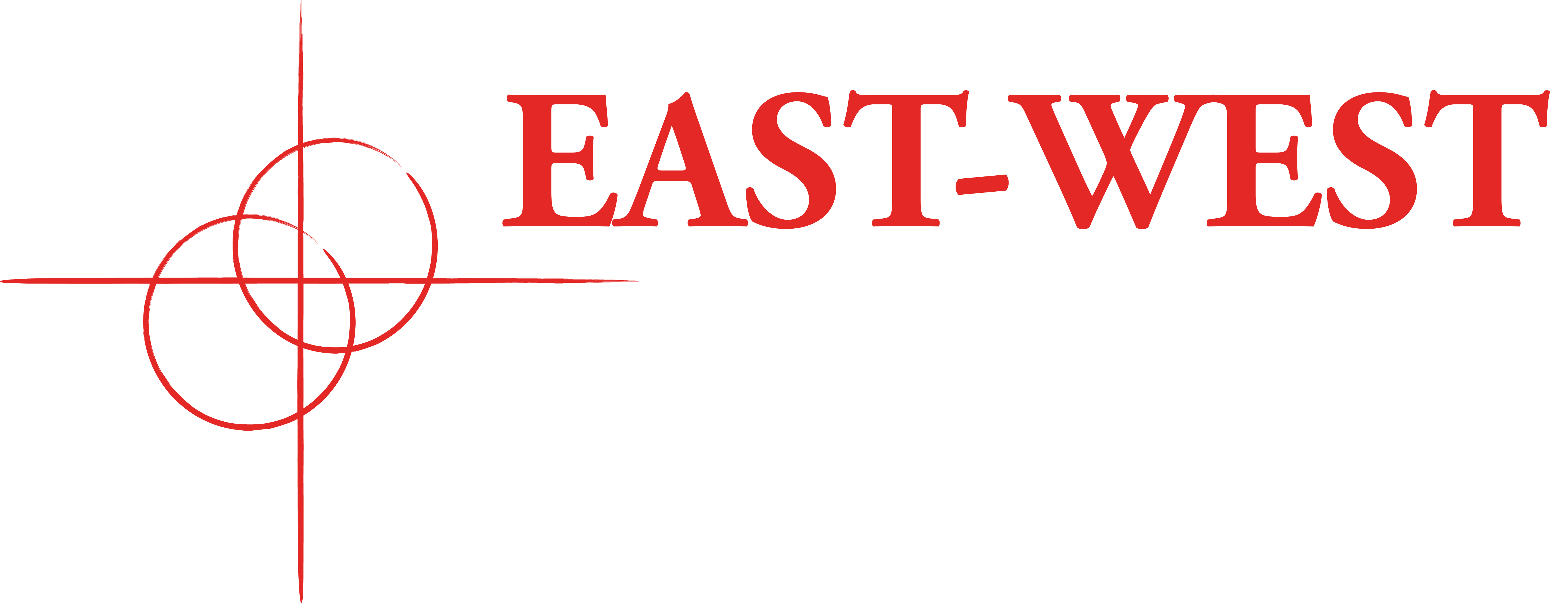“East-West Philosophy in Practical Perspective”
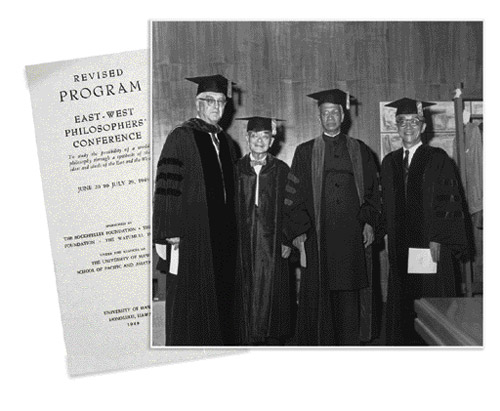
The work of the conference was divided into six one-week Topic-Sections:
- “The Relation of Philosophical Theories to Practical Affairs.”
- “Natural Science and Technology in Relation to Cultural Institutions and Social Practice.
- “Religion and Spiritual Values.”
- “Ethics and Social Practices.”
- “Legal, Political, and Economic Philosophy.”
- “Conspectus of Practical Implications for World Understanding and Co-operation.”
Participating fully in the formal plenary sessions were forty-one Program Members representing Asia, the Near East, Europe, Australia, Canada, and the United States. Conference meetings were also attended by some fifty to sixty Non-Program Members, all specialists in philosophy, and by a number of special guests invited because of the possibility of their significant use of the work of the conference in their activities (governmental, military, educational, or otherwise) with the peoples of Asia.
List of Participants & Essays
- Virgil C. Aldrich “Beyond Ethics”?
- Van Meter Ames “Aesthetic Values in East and West”
- N. Bammate “The Status of Science and Technique in Islamic Civilization”
- Niyazi Berkes “Ethics and Social Practice in Islam”
- E. A. Burtt “A Basic Problem in the Quest for Understanding between East and West”
- Wing-tsit Chan “Chinese Theory and Practice, with Special Reference to Humanism
- G. P. Conger “Societal Structures and Processes”
- D. M. Datta “Political, Legal, and Economic Thought in Indian Perspective”
- Gray L. Dorsey “The Influence of Philosophy on Law and Politics in Western Civilization”
- Sidney Hook “Philosophy and Human Conduct”
- Hsieh Yu-wei “Filial Piety and Chinese Society”
- Hu Shih “The Scientific Spirit and Method in Chinese Philosophy”
- Hideo Kishimoto “Some Japanese Cultural Traits and Religions”
- Frank H. Knight “Philosophy and Social Institutions in the West”
- Stella Kramrisch “Natural Science and Technology in Relation to Cultural Patterns and Social Practices in India”
- Corneliu Krusé “Concluding Remarks”
- T. M. P. Mahadevan “Indian Ethics and Social Practice”
- Shoson Miyamoto “The Relation of Philosophical Theory to Practical Affairs in Japan”
- Charles A. Moore “Retrospect and Prospects: Achievements and Unfinished Business”
- Paul Mus “The Problematic of the Self–West and East, and the Mandala Pattern”
- Hajime Nakamura “Basic Features of the Legal, Political, and Economic Thought of Japan”
- Swami Nikhilananda “The Realistic Aspect of Indian Spirituality”
- F. S. C. Northrop “Comparative Philosophy and Science in the Light of Comparative Law”
- S. Radhakrishnan “The Indian Approach to the Religious Problem”
- P. T. Raju “Religion and Spiritual Values in Indian Thought”
- Constantin Regamey “The Meaning and Significance of Spirituality in Europe and in India”
- F. J. von Rossow “Natural Man, Philosophy, and Behavior”
- Robert Rossow “Natural Man, Philosophy, and Behavior”
- Paul K. Ryu “”Field Theory” in the Study of Cultures: Its Application to Korean Culture”
- S. K. Saksena “Relation of Philosophical Theories to the Practical Affairs of Men”
- Herbert W. Schneider “Western Philosophy and Practical Affairs”
- Herbert W. Schneider “American Traits and Principles”
- M. M. Sharif “Islam and Spiritual Values”
- W. T. Stace “The Mystical Form of Western Spirituality”
- D. T. Suzuki “Basic Thoughts of Underlying Eastern Ethical and Social Practice”
- T’ang Chün-i “The Development of Ideas of Spiritual Value in Chinese Philosophy”
- W. H. Werkmeister “Scientism and the Problem of Man”
- John C. H. Wu “Chinese Legal and Political Philosophy”
- Hideki Yukawa “Modern Trend of Western Civilization and Cultural Peculiarities of Japan”
Public Lectures
- N. Bammate “The Islamic Cultural Tradition and the West”
- F. S. C. Northrop “Comparative Philosophy and World Law”
- Hu Shih “John Dewey in China”
- S. Radhakrishnan “The Present Crisis of Faith
- D. T. Suzuki “Zen and Parapsychology”
Non-Program Members
